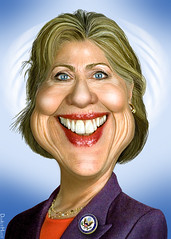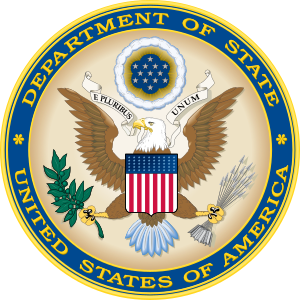 |
| Protester holds up image of murdered gay leader Walter Trochez |
By Tim Johnson
From U.N. chambers to the halls of the State Department, global pressure on countries to protect the rights of homosexuals and transgender people is rising.
For Josue Hernandez, the new emphasis can't come fast enough.
The 33-year-old gay activist bears the scar of the bullet that grazed his skull in an attack a few years ago. He's moved the office of his advocacy group four times. Still, he feels hunted in what is arguably the most homophobic nation in the Americas.
"We are in a deplorable state," Hernandez said of homosexuals in Honduras. "When we walk the streets, people shout insults at us and throw rocks. Parents move their children away."Three months ago, a U.N. report declared that discrimination against lesbian, gay, bisexual and transgender people — or LGBT — violates core international human rights law. It listed nations where violations are most severe.
Joining a push that originated in Europe, the Obama administration said in December that respect for LGBT rights is now a factor in its foreign policy decisions.
"Gay rights are human rights, and human rights are gay rights," Secretary of State Hillary Clinton said in what diplomats described as a landmark speech Dec. 6 in Geneva. "It is a violation of human rights when governments declare it illegal to be gay, or allow those who harm gay people to go unpunished."But even as that view grows more prevalent, it has yet to translate into better security, less hostility or fewer killings in places like Honduras, a nation of 8 million people in Central America.
Since the beginning of 2010, Honduras has tallied at least 62 homicides within the LGBT community, and some experts say the count may be far higher. Some victims have been mutilated and even burned.
The killing of homosexuals is part of broader lawlessness. Honduras registered more than 6,700 homicides last year and has the highest per capita murder rate in the hemisphere.
One recent victim was Carlos Porfirio Juarez, a 25-year-old deaf mute who was taking hormones as part of a switch in gender to become "Karlita."
On Dec. 4, Juarez vanished while seeking sex clients at the Obelisco Park near the army general staff headquarters in Comayaguela, a city adjacent to the capital, Tegucigalpa.
"She didn't have a purse, a cellular phone or anything of value," said Jose Zambrano of the Association for a Better Quality of Life for those Infected with HIV/AIDS in Honduras.
"Only her life," added Zambrano's sister, Sandra, a leader of the group.



























 Join our page
Join our page

